Comprehension skills Normal Reading Fiction Worksheets for Ages 4-9
7 filtered results
-
From - To
Unlock a world of imagination and understanding with our Comprehension Skills Normal Reading Fiction Worksheets, designed specifically for children ages 4-9. These engaging worksheets help young learners develop essential reading comprehension skills through captivating stories and interactive exercises. Each activity encourages critical thinking and enhances vocabulary, fostering a love for reading while ensuring that children can understand and express their ideas effectively. Perfect for both classroom settings and home learning, our worksheets are user-friendly and aligned with educational standards. Dive into a fun-filled reading adventure that makes learning enjoyable and helps children become confident readers!
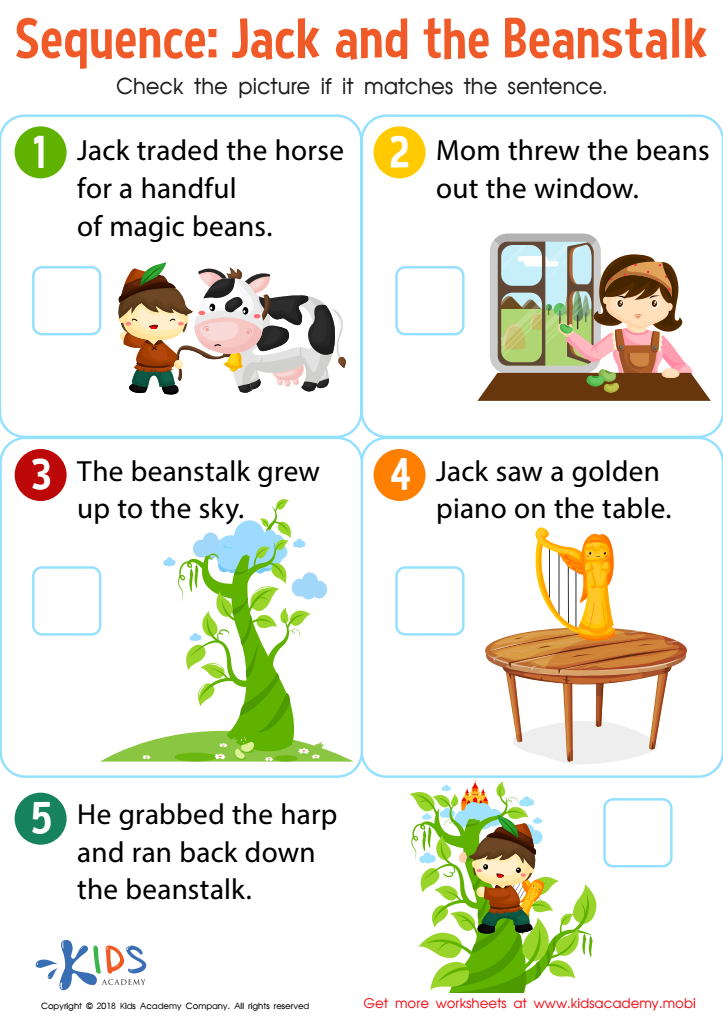

Sequence: Jack and The Beanstalk Worksheet
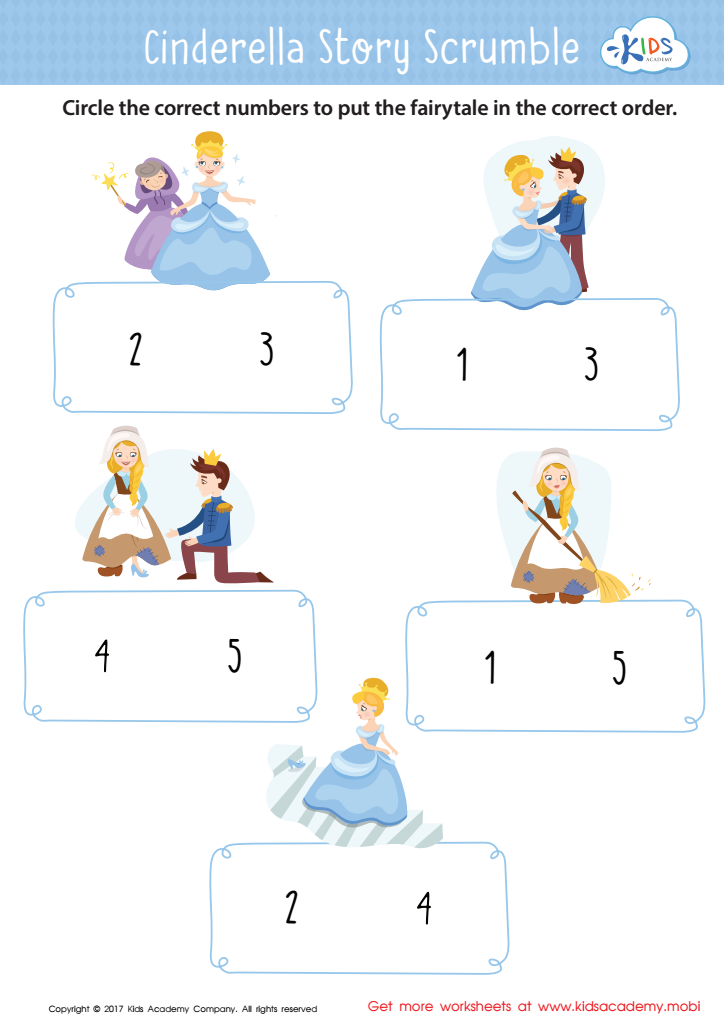

Cinderella Story Sequencing Worksheet
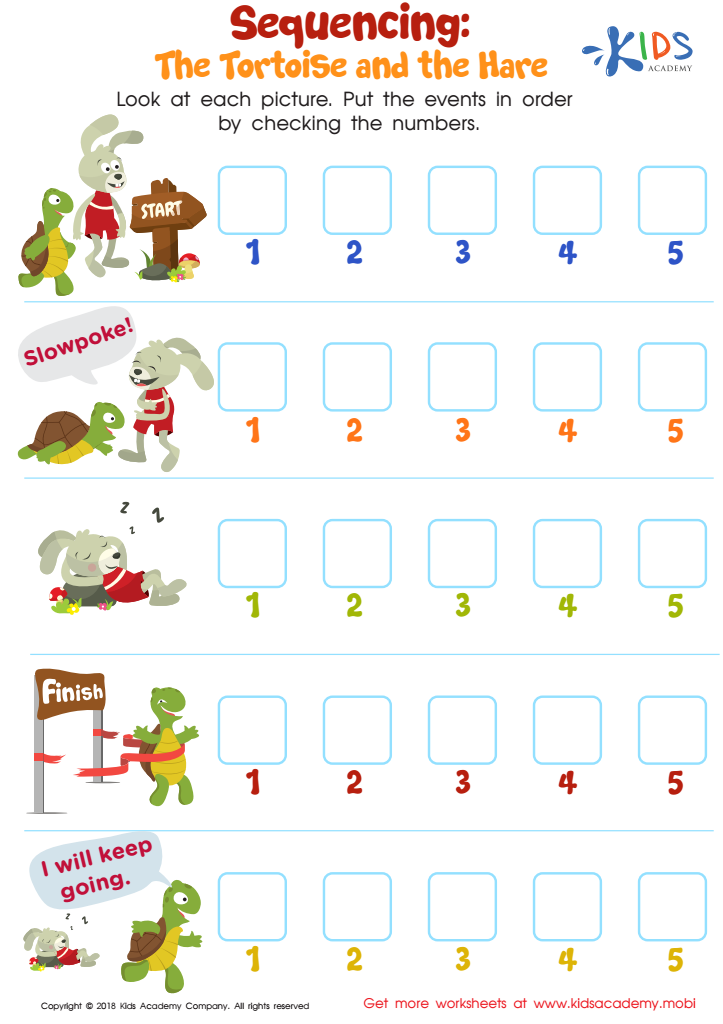

Sequencing: The Tortoise and the Hare Worksheet
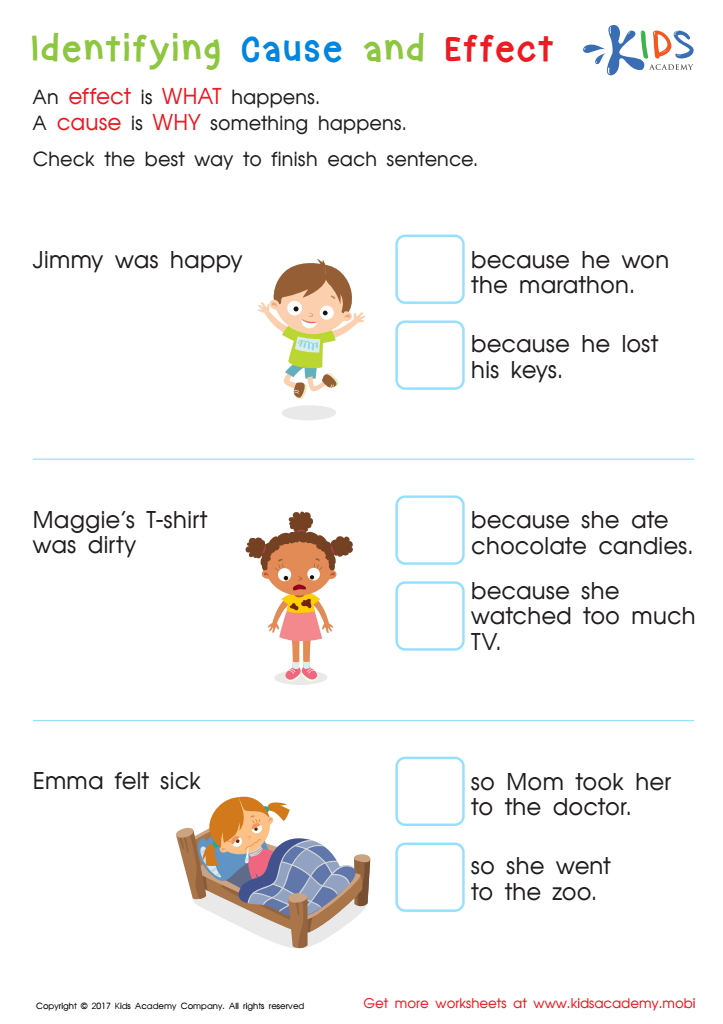

Indentifying Cause and Effect Worksheet
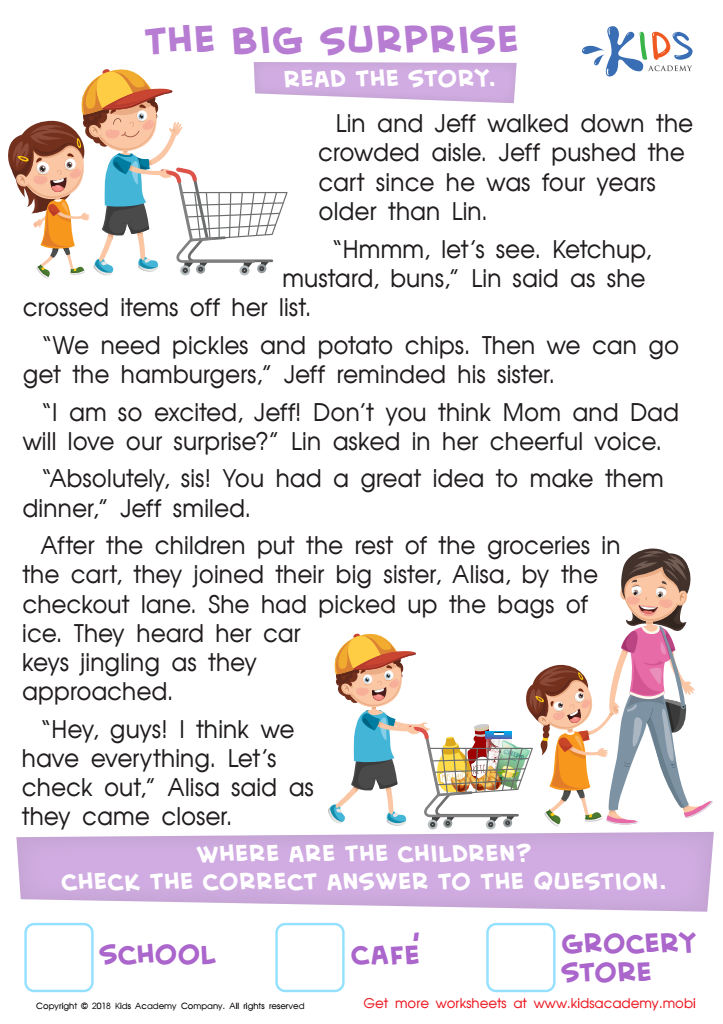

The Big Surprise Worksheet
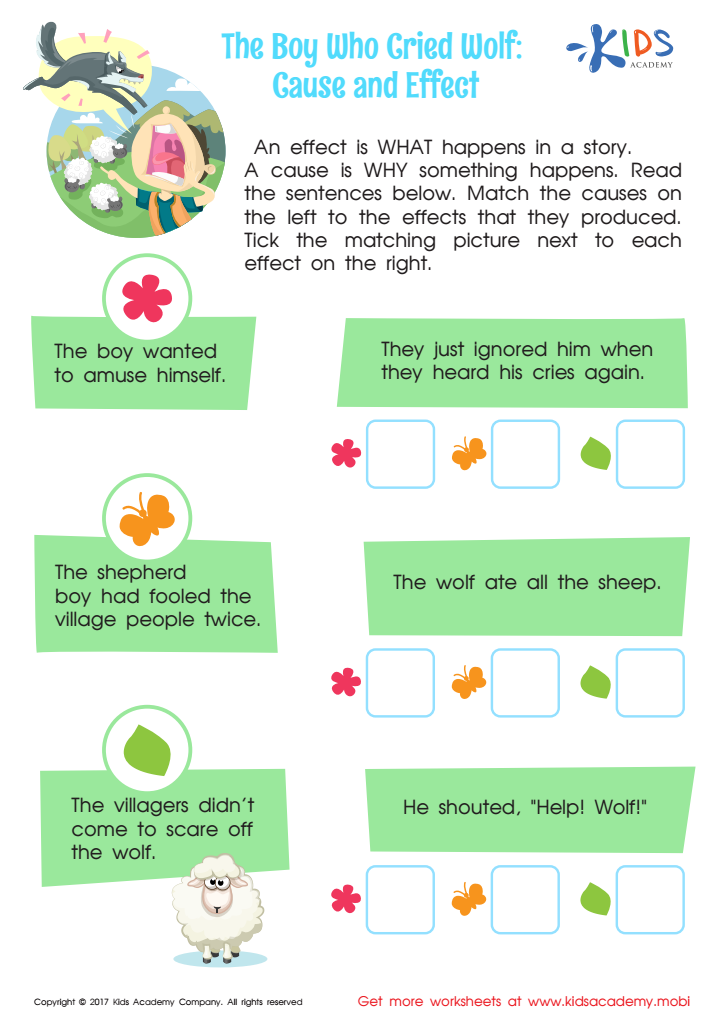

The Boy Who Cried Wolf: Cause and Effect Worksheet
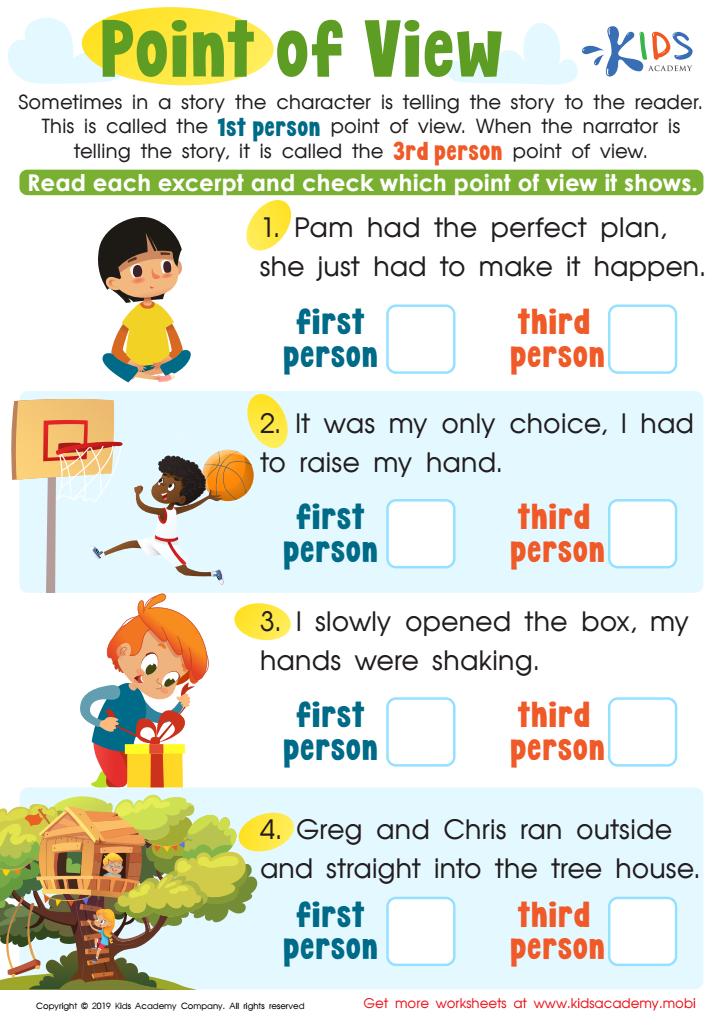

Point of View Printable
Comprehension skills are vital for young readers aged 4-9, as they form the foundation for lifelong learning. Understanding fiction not only enhances language development but also cultivates critical thinking and emotional intelligence. When children can comprehend stories, they are better equipped to visualize scenarios, draw conclusions, and empathize with characters, all of which are essential for personal and social development.
Parents and teachers should prioritize comprehension skills because they foster a love for reading. Engaging stories captivate children's imaginations, encourage discussions, and prompt questions that stimulate curious minds. A strong grasp of fiction helps children connect their experiences to the narrative, fostering deeper learning and retention.
Moreover, comprehension is linked to academic success across all subjects. A child who can understand and analyze sounds, letters, and words will find it easier to grasp concepts in science, history, and math.
In essence, nurturing comprehension skills helps children refine their listening, speaking, and analytical abilities, laying the groundwork for effective communication. By investing in these skills through reading fiction, parents and teachers help children become confident, curious learners who will thrive both academically and socially.

 Assign to My Students
Assign to My Students







.jpg)
.jpg)











